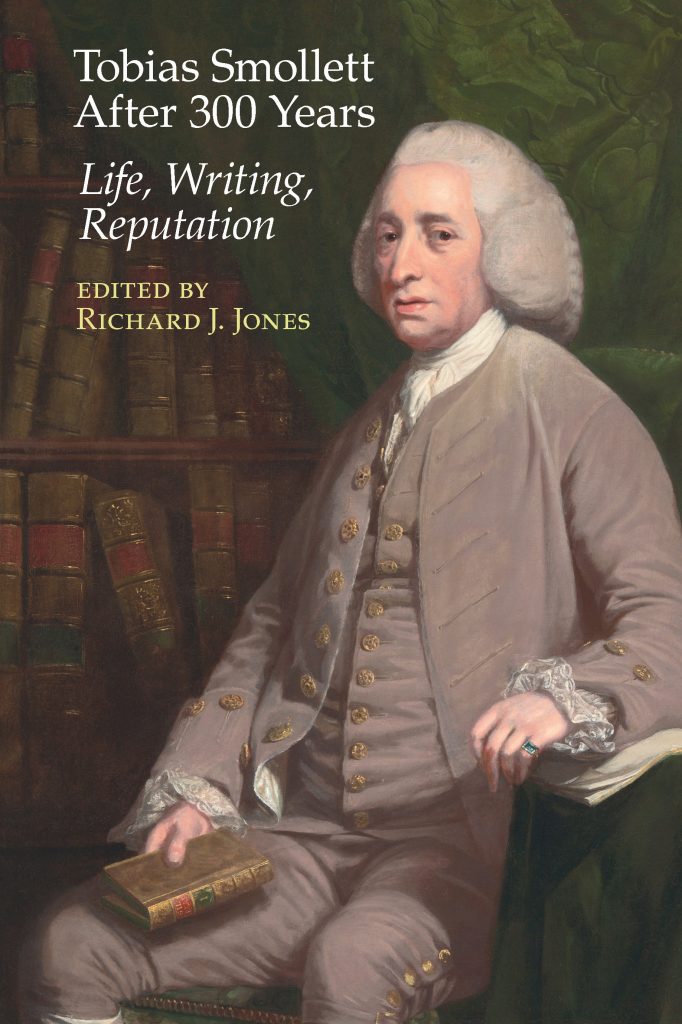Tobias Smollett After 300 Years
Life, Writing, Reputation
Edited by Richard J. Jones
Smollett after 300 years offers a collection of essays on one of the great literary figures of the eighteenth century: the Scottish writer, Tobias Smollett (1721–1771). Drawing together the work of an international group of scholars, with a variety of critical approaches, the book examines aspects of Smollett’s life, writing and reputation on the occasion of the three-hundredth anniversary of his birth. Smollett is perhaps best known today as a novelist. However, he also worked tirelessly as a translator, historian, critic and editor. Whilst this book gives space to Smollett’s innovations in writing fiction (described, variously, as malapropic, metaleptic, avuncular and periodical), it also draws on his wider work, situating it in the intellectual and visual culture of the book trade, traditions of domestic and humoral medicine, the politics of the Anglo-Scottish Union and projects to write a national history. Moments of Smollett’s biography are revisited through newly-published correspondence, including accounts of his relationship to the sale of enslaved people. A new area for Smollett studies – his reception in Russia – suggests the reach of his work. The book concludes with some reflections on the state of Smollett studies today and the urgent message this eighteenth-century writer might bring to twenty-first century classrooms.
About the Editor
Richard J. Jones is Senior Lecturer in Literature at The Open University in the UK. He is the author of Tobias Smollett in the Enlightenment: Travels through France, Italy and Scotland (Bucknell University Press, 2011) along with articles on Smollett’s historical and critical writing. He has offered an overview of Smollett studies for Literature Compass (2018) and contributed a chapter on Smollett’s periodical writing to the academic textbook Studying English Literature in Context: Critical Readings (Cambridge University Press, 2022). He is interested in recovering the kind of ‘literature’ David Hume once described as being the ‘ruling passion’ of his life.
Introduction | Richard J. Jones
Life and letters
1 Was Smollett into body-snatching? Deciphering a hitherto unpublished letter | Frank Felsenstein
2 “Broiling on the Coast of Guinea”: Tobias Smollett and Atlantic slavery | Matthew Lee
Making books
3 Don Quixote in eighteenth-century British book culture: Tobias Smollett and Francis Hayman | M. A. Katritzky
4 “Justness of Distinction”: class and taste in the Monthly and Critical Reviews | Urmi Bhowmik
The work of medicine
5 “Such a domestic plague”? The silent stewardship of Tabitha Bramble in Smollett’s Humphry Clinker | Laurence Sullivan
6 “Be not solitary, be not idle”: Smollett’s epistolary travel narrative as Burtonian cure | Erin Severson
Making history
7 Smollett, Hume, and the project of a politically skeptical national history | Spartaco Pupo
8 “This united kingdom”: Tobias Smollett and the writing of Anglo-Scottish Union after the Forty-Five | Phineas Dowling
Storytelling
9 Assimilation and anti-assimilation: malapropic forms in Smollett’s Humphry Clinker | Phillip M. Cortes
10 Metalepsis and the fringe of reality in Smollett’s Humphry Clinker | Mihaela Mudure
11 Avuncular developments: Smollett’s Peregrine Pickle | Hanne Roth
12 The life and adventures of Tobias Smollett | Richard J. Jones
New receptions
13 “This is a laugh riot”: reading Smollett in Tsarist Russia | Artem Serebrennikov
14 “Inferior to Engels”: Publishing Smollett in Stalinist Russia | Peter Budrin
Afterthoughts
15 The best of Smollett, the worst of Smollett: reflections on twenty years of editing | Leslie A. Chilton
16 “Classless and unconfined”: Tobias Smollett and the human condition | Daniel H. Ferris

Details
Pages: 368 pages
Published: December 2023
Formats
Hardback
ISBN: 978-1-63804-081-1
eBook
ISBN: 978-1-63804-082-8
Subjects
LiteratureSeries
18th-Century Moments





